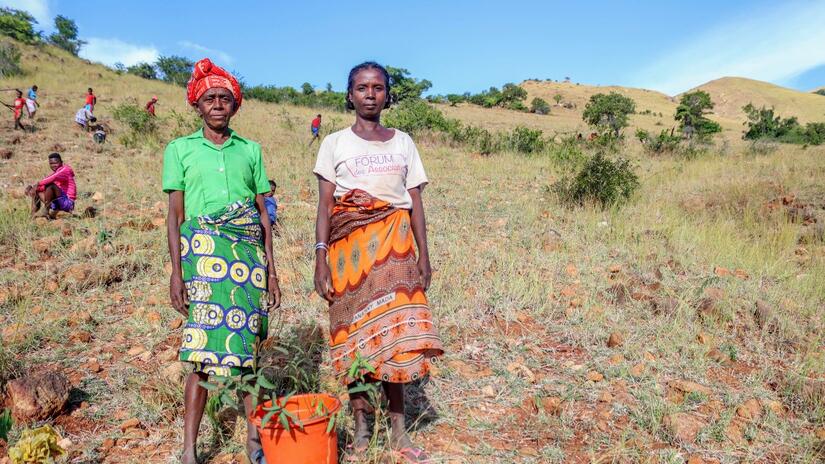On behalf of the International Federation of Red Cross and Red Crescent Societies (IFRC) and our 191-member National Red Cross and Red Crescent Societies, I am pleased to address the Security Council Ministerial Open Debate.
Our National Society volunteers from their local communities tell us that the climate crisis is the number one humanitarian crisis that communities face around the globe, threatening human security.
Currently, 90% of all disasters are climate and weather-related, resulting in the deaths of over 410,000 people in the last decade, and impacting 1.7 billion people.
The impacts of climate crisis are compounding other crises – food insecurity, disease outbreaks, water shortages and large population movements – reversing development gains thereby impacting global peace and security.
Although the climate crisis affects us all, the science and data shows that we are not all impacted equally. Our focus must be on the communities most impacted and at risk, especially those in fragile settings.
Mr/Madam President,
While we know that a one-size-fits-all solution to reducing climate risks does not exist, the IFRC proposes three important shifts to address the magnitude of the climate crisis before us:
Focus on community leadership, ownership and reach – Investing in large scale disaster risk reduction, climate mitigation and adaptation, at the community level, where it is most needed and has the greatest potential impact is essential.
Local organizations are critical to designing and implementing climate action, and channeling climate finance to the right places, to those most in need. They must drive the change.
Fill the financing gaps – Some 30 of the most climate vulnerable countries – a majority of which are fragile contexts – receive only $1 per person per year in climate adaptation funding.
We must change how we finance climate action.
There must be a more integrated approach to humanitarian, development, climate and peace financing, putting the needs of the communities at the center.
The funding must reach the local level to build and empower local institutional and response capacities and solutions. The empowered local communities form the foundation for peaceful societies.
Forecasting and anticipatory action – We all must scale up early warning and early action systems that provide communities with information and funding to act before climate events become disasters.
This means giving local organizations more direct access to finance and decision-making processes through mechanisms like IFRC’s Disaster Response Emergency Fund (DREF), that provides direct funding to National Red Cross and Red Crescent Societies who play a key role in protecting people from the impacts of climate change.
We all – whether from the humanitarian, development, climate or peace sectors – must work together to address both immediate needs and strengthen long-term resilience to prevent and alleviate human suffering and thereby contribute to the maintenance of human dignity and peace in the world.
Thank you.

